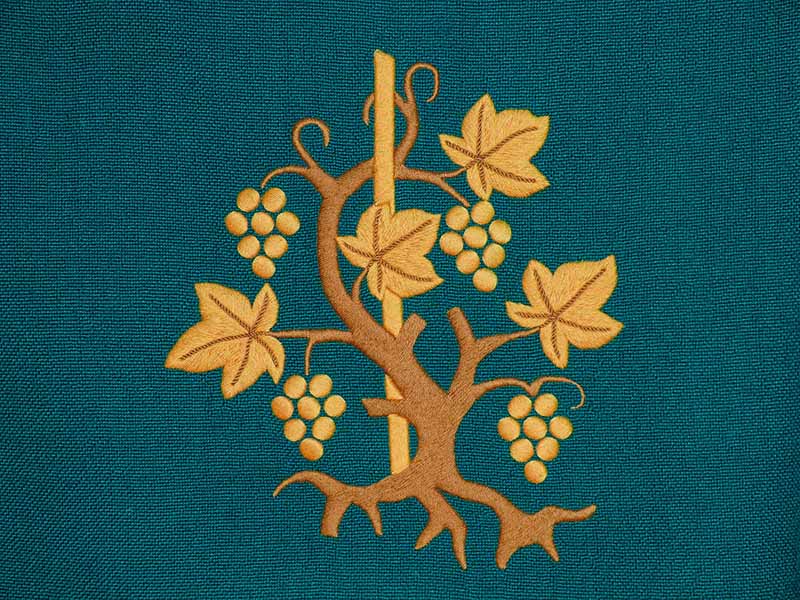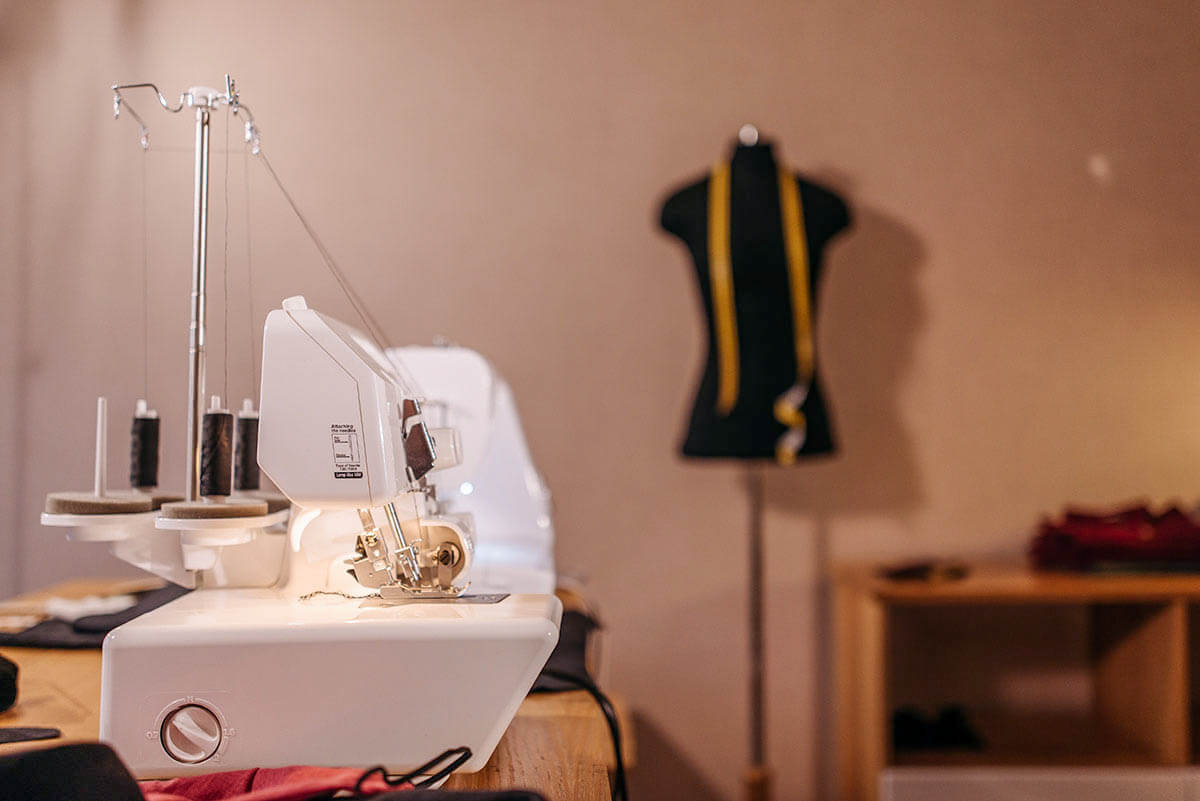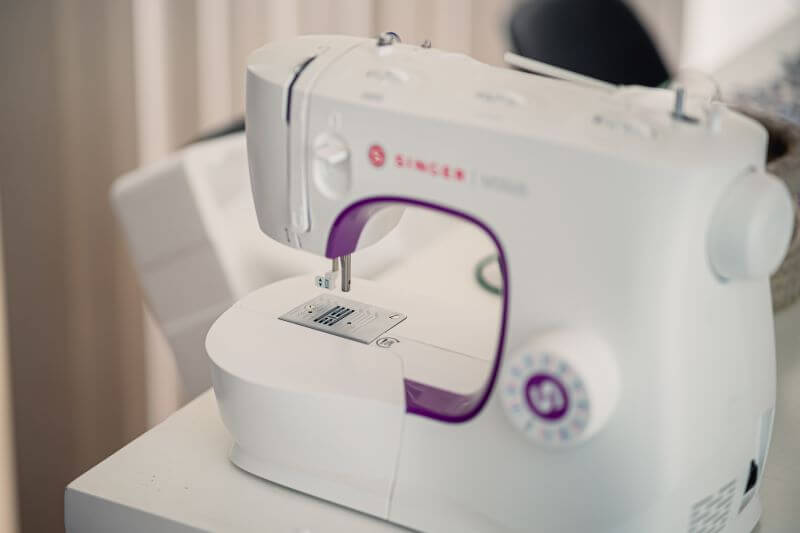 There are different types of file formats that most embroidery machines do not support. File formats such as JPG, PNG, DST, and DEW are not compatible with some machines. For instance, Brother sewing machines won’t process any embroidery design that is not in a PES file format. One way to create PES files is by using computer software or use a web-based platform. Software programs are designed for the rasterization of other file formats that are incompatible and create PES file format to have compatibility with the sewing machine.
There are different types of file formats that most embroidery machines do not support. File formats such as JPG, PNG, DST, and DEW are not compatible with some machines. For instance, Brother sewing machines won’t process any embroidery design that is not in a PES file format. One way to create PES files is by using computer software or use a web-based platform. Software programs are designed for the rasterization of other file formats that are incompatible and create PES file format to have compatibility with the sewing machine.
One of the best embroidery software is SewArt Embroidery Digitizer. This software is robust, cost-effective and works perfectly well with many embroidery sewing machines. With the SewArt Embroidery Digitizer, you can create PES files with the utmost ease. We have made a comprehensive tutorial on how you can create a PES file with this software. Follow the steps and do it without stress. Happy stitching!
Creating a PES File With SewArt Embroidery Digitizer
Step 1 – Designing With SewArt
- Designing your embroidery pattern is the first thing you have to do. Although, the SewArt has some design tools but it is not a fantastic software for embroidery designs. In this case, we recommended Adobe Illustrator or Inkscape. Any of these two will do a good job designing your embroidery pattern.
- If you cannot design it, you can get some embroidery designs on the internet. The designs you get from the internet must be JPG or PNG file format for the ease of creating a PES format.
- The same thing applies if you are designing from scratch with Adobe Illustrator or Inkscape. The files must also be saved in JPG or PNG file format. The SewArt program only accepts these two file formats when you want to import your rasterized files into the software program.
- At the point of importing the design into the machine, you will have to check the size of the file. The design must not be bigger than the hoop. The compatible size is 5×7 or 4×7 for most machines. You can also scale down the size if you want to.
- Resolution is all about the sharpness of the file. So, at this point where you want to export the file, ensure you choose 300 PPI to keep the quality of the design.
Step 2 – Time to Process the Design
The next thing is to process your design in the SewArt Embroidery Digitizer
- The first thing to do is to open the JPG or PNG file in the embroidery software. After opening the file, do the processing of the file.
- Processing the file is all about the reduction of colors that come with the design. Four different tools can be used to process the design. They are the Merge Colours, Colour Reduction, Image Merge and Posterize. Let’s take a look at the work of each of these tools.
Image Wizard
This tool helps you to reduce the colors of the image. There are four steps you have to pass through to get this done perfectly. The tool is an excellent one because you can see a preview of the file so you know the quality is still being maintained or degraded.
Colour Reduction
This tool also reduces different colors further.
Posterize
The tool is responsible for the removal of delicate color gradients in the file.
Merge Colours
A breakdown of the colors in the design is shown by this tool. With this tool, you can easily merge related colors.
Step 3 – Stitching the Design
Stitching the design is the next thing to do if you are satisfied with the processing of the design.
- Look for the Stitch tool. This tool has a resemblance to a little machine. It has two options – Stitch Groups and Stitch Clear.
- The Auto-Sew tool stitches the design automatically. Each color is sewn differently with the Fill option. You can use the Stitch Picker also. It helps you to choose the colors that suit you before the stitching.
- If you are doing this for the first time, it is advisable to use the Auto-Stitch which is a default setting to get a satisfactory design.
- When you are satisfied, click “OK”. Another window will be opened where you are going to save the file. First of all, save the file in TIFF format. Next is to save it as PES which is the digital embroidery file format.
- Try to double-check the design size as you save the file. If you chose the option of large loop attachment, ensure that the canvas size is not more than 5×7 if you have opted for the small loop attachment; be sure that the canvas size does not exceed 4×7.
Step 4 – Forwarding the Embroidery Design to the Machine
The last thing to do is to send the digital embroidery design to the machine where it will be utilized.
- There are many embroidery machines such as Brother and SINGER that come with USB ports. Now, copy your design into a flash drive or any other external storage device. Then, insert the flash drive into the machine and copy the PES file.
- Some machines have a USB cable. So, with the USB cable, it will be detected as “Connected Drive”. This is just the same process of copying with a flash drive. If you have properly copied the file, it will show up right in the USB button of the machine.
The Second Method of Creating PES Files Using a Web-Based Application
If you don’t want to use a software program to create your PES file, you can use a web-based application like www.onlineconvertfree.com. This is completely free. Here is a simple process to follow:
- Go to www.onlineconvertfree.com Click on “CHOOSE FILE” to select the file you want to use from your computer or other destinations such as Google Drive.
- Select the PES format that you want to convert to
- Wait for your file to be downloaded. After that, click on the downloaded PES file. That is all.
Note that using a web-based application may degrade the quality of the design








